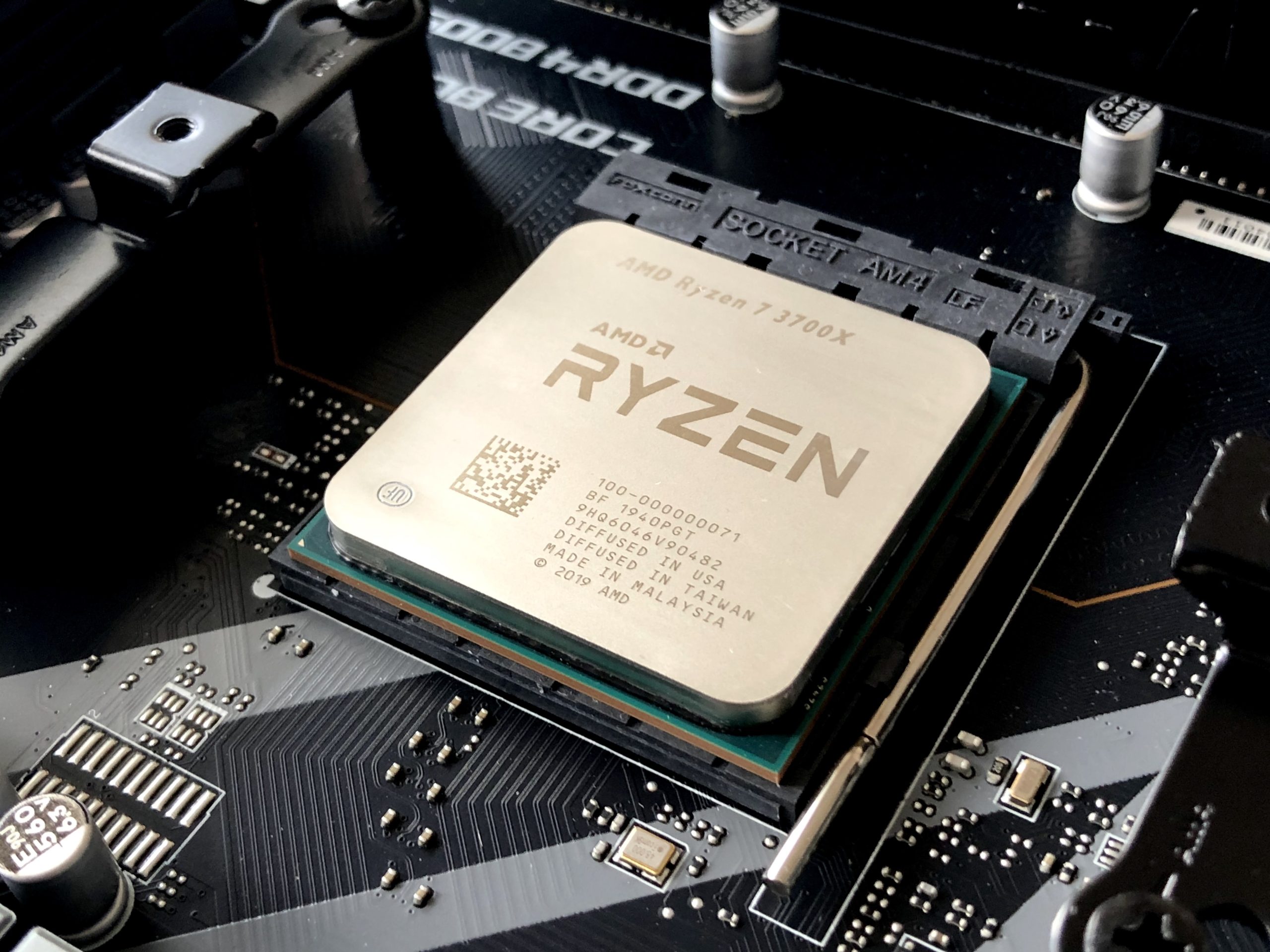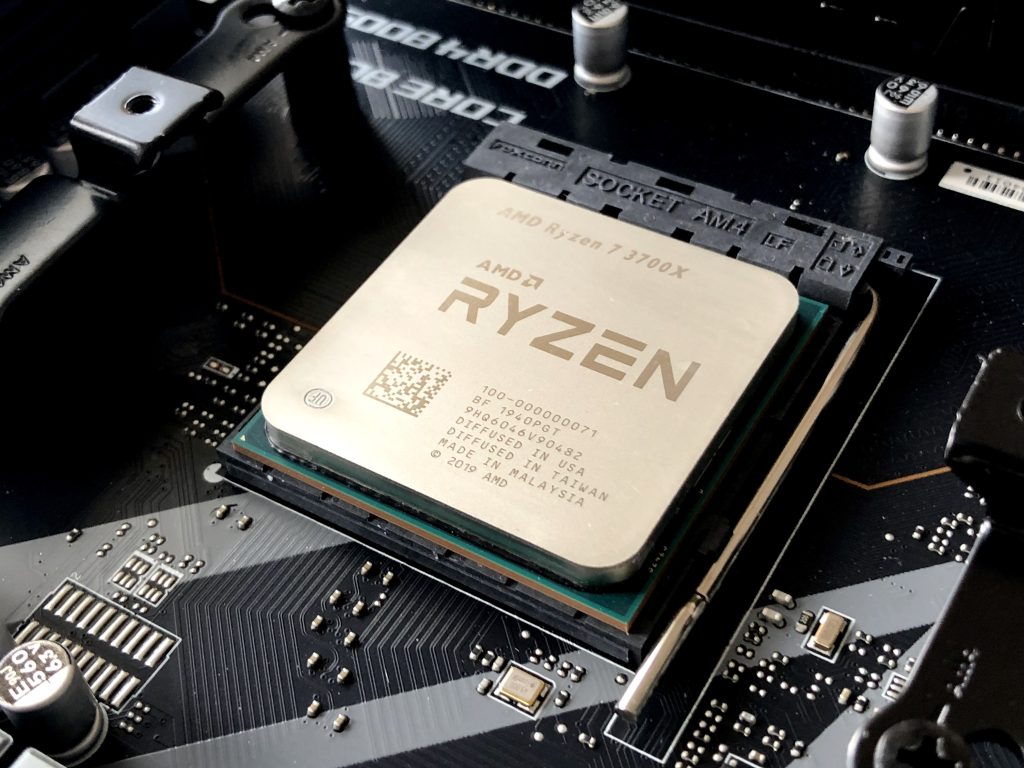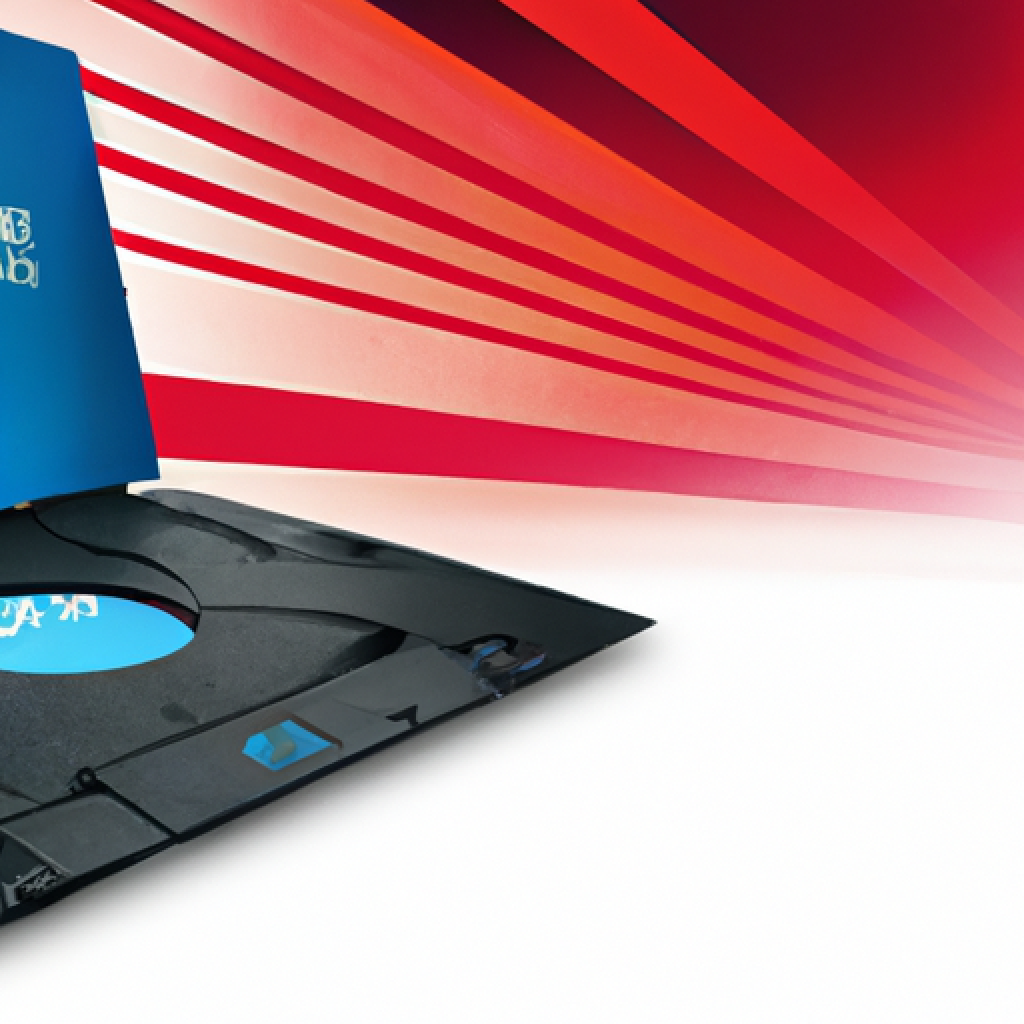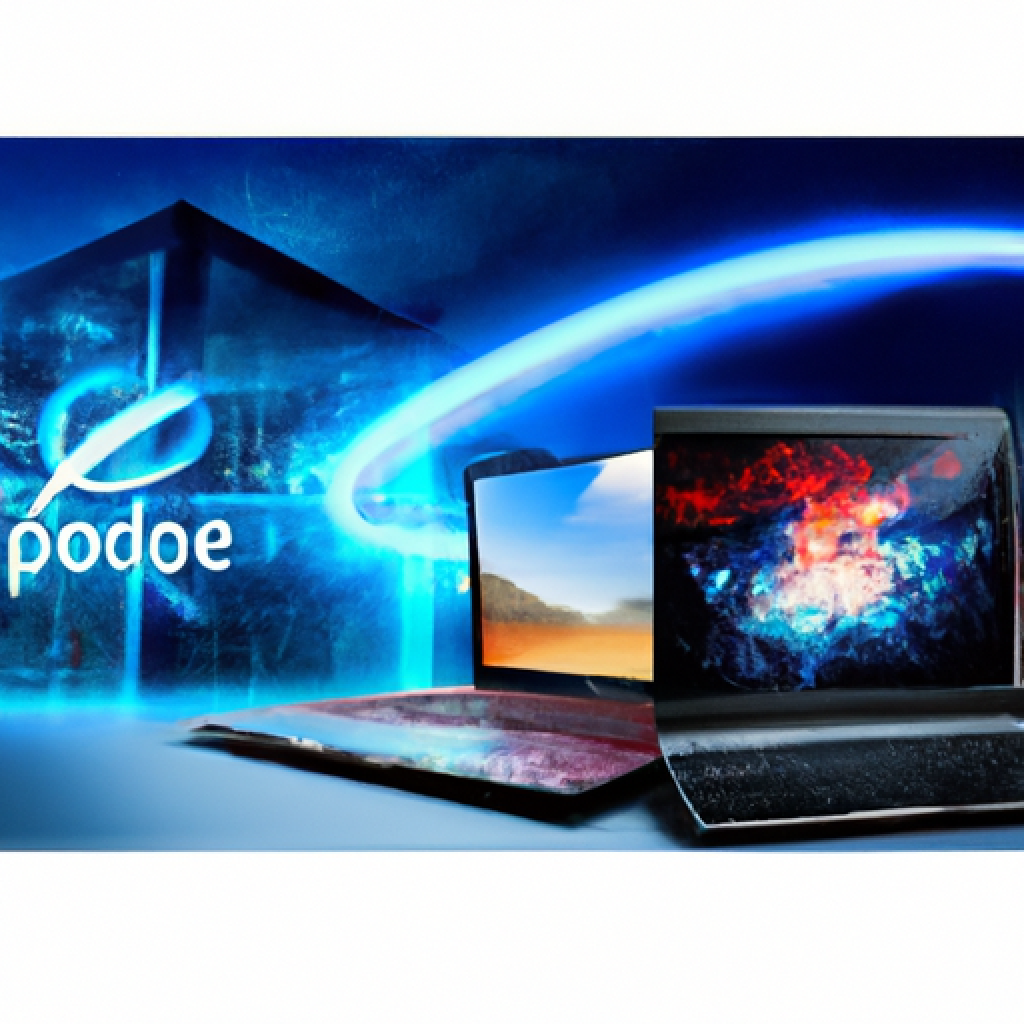Laptops: What Processor Do I Need For Gaming?

I’ve always been a gaming enthusiast, and I know how crucial it is to have the right processor for an optimal gaming experience. With the constant advancements in technology, it can be overwhelming to choose the perfect laptop processor that suits your gaming needs. In this article, I’ll be exploring the world of laptop processors and guiding you on what to look for when it comes to gaming. So, if you’re tired of laggy gameplay and want to level up your gaming performance, keep reading to find out what processor you need for your gaming adventures.
Understanding Processors
What is a Processor?
A processor, also known as a central processing unit (CPU), is the brain of a computer or gaming system. It is responsible for executing instructions, performing calculations, and managing data flow within the system. In simple terms, the processor is what allows your computer or gaming device to function and run various tasks.
Function and Importance of a Processor
The main function of a processor is to carry out the instructions and computations required by software applications. It processes data, performs calculations, and controls the flow of information between different components of a computer system. Without a processor, a computer or gaming device would be unable to carry out any tasks.
The importance of a processor in gaming cannot be overstated. A powerful processor directly impacts the overall performance and speed of gameplay. It determines how quickly your game loads, how smoothly it runs, and how well it handles complex graphics and calculations. A good processor is essential for delivering an immersive gaming experience.
Core Components of a Processor
A processor consists of several key components that work together to carry out its tasks efficiently. The two major components are the control unit and the arithmetic logic unit (ALU). The control unit manages and coordinates the activities of the processor, while the ALU is responsible for performing calculations and logical operations.
Additionally, a processor also includes a cache memory, which stores frequently accessed data for faster retrieval. It also contains registers to hold temporary data, buses to facilitate data transfer, and a clock to synchronize all the operations within the processor. These components work in harmony to ensure the smooth functioning of the processor.
How Processors Impact Gaming Performance
The performance of a processor has a significant impact on gaming. A faster processor with more cores and a higher clock speed can handle demanding games with complex graphics and intense calculations more efficiently. It ensures smoother gameplay, faster loading times, and better overall responsiveness.
A processor’s ability to handle multiple threads simultaneously also affects gaming performance. Hyperthreading, a feature available in some processors, allows for better multitasking and improved performance in multi-threaded gaming applications. A processor with hyperthreading can handle multiple tasks simultaneously, resulting in smoother gameplay and reduced lag.
In summary, a powerful processor enhances gaming performance by enabling faster processing of game data, smoother graphics rendering, and improved overall system responsiveness.
Types of Processors
CPU vs GPU: Understanding the Difference
When it comes to processors, there are two main types: the central processing unit (CPU) and the graphics processing unit (GPU). While both CPUs and GPUs are processors, they serve different functions in a computer or gaming system.
A CPU is a general-purpose processor designed to handle a wide range of tasks, including running operating systems, executing software applications, and managing system resources. It is responsible for most of the computational work in a computer or gaming device.
On the other hand, a GPU is specifically designed to handle graphics-related tasks. It excels in rendering and processing images, videos, and 3D graphics. GPUs are particularly crucial in gaming, as they handle the complex calculations required for realistic and immersive visuals.
Integrated vs Dedicated Processors
Processors can also be classified as integrated or dedicated. An integrated processor, also known as an integrated graphics processor (IGP), combines the CPU and GPU onto a single chip. These processors are commonly found in entry-level laptops and desktops, as they offer cost-effective solutions for everyday computing tasks.
Dedicated processors, on the other hand, have separate CPU and GPU components. They provide more power and performance, making them ideal for demanding tasks such as gaming, video editing, and 3D modeling. Gaming enthusiasts often opt for dedicated processors to ensure smooth gameplay and optimal graphics performance.
While integrated processors are suitable for casual gaming and everyday tasks, dedicated processors are the go-to choice for gamers seeking the best possible gaming experience.

Processor Brands
AMD vs Intel: Comparison and Review
When it comes to processors, the two most prominent brands in the market are AMD and Intel. Both manufacturers offer a wide range of processors with varying performance levels and price points.
AMD has gained popularity in recent years by offering processors that deliver excellent performance at competitive prices. Their Ryzen series processors are known for their multi-core performance, making them ideal for gaming and content creation. They provide a good balance between price and performance, making them a popular choice among gamers on a budget.
On the other hand, Intel is known for its long-standing reputation and dominance in the processor market. Intel processors, particularly those from the Core i7 and i9 series, offer top-of-the-line performance and are often favored by professional gamers and enthusiasts. Intel processors are generally more expensive than their AMD counterparts but offer exceptional single-threaded performance and compatibility with a wide range of software.
Both AMD and Intel have their strengths and weaknesses, and the choice ultimately depends on individual requirements, budget, and preferences.
Emerging Processor Brands Worth Considering
While AMD and Intel dominate the market, there are also some emerging processor brands worth considering. These brands may not have the same level of brand recognition or market share as AMD and Intel but offer competitive alternatives for certain market segments.
One such brand is Qualcomm, which is primarily known for its mobile processors. Qualcomm processors, such as the Snapdragon series, have begun making their way into laptops, offering efficient performance and extended battery life. These processors are particularly suited for lightweight laptops and casual gaming.
Another emerging brand worth considering is Apple. With their transition to Apple Silicon, Apple has started producing their own processors for their Mac lineup. The M1 chip, for example, has received rave reviews for its exceptional performance and energy efficiency. While primarily designed for Macs, these processors are expected to have a significant impact on the laptop market as they provide a seamless integration of hardware and software.
When exploring processor options, it’s worth keeping an eye on these emerging brands as they continue to innovate and offer unique capabilities in the processor market.
Choosing the Right Processor for Gaming
Processor Speed and Gaming
Processor speed, measured in gigahertz (GHz), plays a crucial role in gaming performance. A higher clock speed allows a processor to execute instructions and calculations faster, resulting in smoother gameplay and quicker loading times.
However, it’s important to note that processor speed is not the sole factor determining gaming performance. Other factors, such as the number of cores and the presence of advanced features like hyperthreading, also contribute to overall gaming performance. Gamers should consider these factors in conjunction with processor speed to make an informed decision.
Does the Number of Cores Matter?
The number of cores in a processor refers to the independent processing units that can execute tasks simultaneously. More cores generally result in better multitasking capabilities and improved performance in multi-threaded applications, such as modern games.
For gaming, a processor with at least four cores is typically recommended. This allows for efficient distribution of tasks, such as game physics, artificial intelligence, and background processes, across multiple cores. However, it’s worth noting that not all games are optimized to take full advantage of multiple cores, so the number of cores alone is not always a definitive factor in gaming performance.
Importance of Cache Memory for Gaming
Cache memory, also known as CPU cache, is a small amount of high-speed memory located on the processor. It acts as a buffer between the processor and the slower main memory, storing frequently accessed data for quicker retrieval.
Cache memory plays a crucial role in gaming, as it allows the processor to access frequently used game data more quickly. This results in reduced loading times, smoother gameplay, and improved overall performance. When choosing a processor for gaming, it’s important to consider the size and speed of the cache memory alongside other factors to ensure optimal gaming performance.
The Role of Hyperthreading in Gaming
Hyperthreading is a technology available in some processors that allows each physical core to handle multiple threads simultaneously. It essentially simulates additional cores, resulting in improved multitasking performance and better utilization of resources.
In gaming, hyperthreading can have a positive impact on performance, particularly in multi-threaded games and applications. It allows for more efficient utilization of resources, better overall system responsiveness, and smoother gameplay. However, it’s worth noting that hyperthreading may not provide a significant boost in performance for all games, as not all games are optimized to take full advantage of this technology.
When choosing a processor for gaming, considering the presence and impact of hyperthreading can help ensure a smooth and responsive gaming experience.

Budget Considerations
Best Budget Gaming Processors
For gamers on a budget, there are several processors available that offer excellent performance without breaking the bank. These budget-friendly processors provide a good balance between price and performance, making them ideal for casual and mid-range gaming.
Two popular budget gaming processor options are the AMD Ryzen 5 3600 and the Intel Core i5-10400F. The Ryzen 5 3600 offers six cores and twelve threads, with a base clock speed of 3.6 GHz that can boost up to 4.2 GHz. It provides excellent performance in both gaming and productivity tasks at a competitive price point.
Similarly, the Intel Core i5-10400F is a six-core processor with a base clock speed of 2.9 GHz that can turbo boost up to 4.3 GHz. This processor offers good single-core and multi-threaded performance, making it suitable for gaming on a budget.
Balancing Performance and Price
When selecting a processor for gaming, it’s essential to strike the right balance between performance and price. While it’s tempting to opt for the highest-performing processor on the market, it may not always be necessary or cost-effective for gaming.
Consider your gaming requirements and budget. Evaluate the games you plan to play and the level of performance you desire. Look for processors that offer sufficient capabilities to handle your gaming needs without exceeding your budget. It’s often possible to find processors that provide excellent gaming performance at a more affordable price point, especially when considering previous-generation or mid-range options.
Cost of Upgrading an Existing Processor
If you already have a gaming system and are considering upgrading your processor, it’s essential to factor in the cost of the upgrade. Upgrading a processor typically involves purchasing a new processor compatible with your motherboard, which can be a significant investment.
In addition to the cost of the processor, you may also need to consider additional expenses such as a new cooling solution, as upgraded processors often generate more heat and require better cooling. It’s important to research and determine the compatibility of your existing system components with the new processor to avoid any compatibility issues or unexpected costs.
Consider whether the cost of upgrading your existing processor justifies the performance gains you expect to achieve. Sometimes, it may be more cost-effective to invest in a new gaming system or purchase a pre-built gaming PC with the desired processor specifications.
Future Proofing Your Processor Choice
Importance of Future Proofing
When selecting a processor for gaming, it’s essential to consider future-proofing. Future-proofing refers to choosing a processor that will remain relevant and capable of meeting your gaming requirements for a reasonable period in the future.
Technology is continuously evolving, and gaming requirements are becoming more demanding. Future-proofing your processor helps ensure that your gaming system remains capable of handling upcoming games and software updates without requiring frequent upgrades.
Choosing a Processor that will Stand the Test of Time
To choose a processor that will stand the test of time, consider factors such as the processor’s performance capabilities, the number of cores, and compatibility with the latest technologies. Opting for a processor with a high core count and advanced features ensures that your system can handle future games and software optimizations that leverage multi-threading and advanced capabilities.
Moreover, considering the processor’s compatibility with emerging technologies, such as PCIe 4.0 or DDR5 memory, can enhance your system’s longevity and provide room for future hardware upgrades.
While future-proofing cannot guarantee complete compatibility with all future technologies, it can help extend the lifespan of your gaming system and delay the need for frequent upgrades.

Processors and Gaming Laptops
Gaming Laptops vs Desktop PCs for Gaming
When it comes to gaming, the choice between a gaming laptop and a desktop PC is often a matter of personal preference and portability requirements.
Gaming laptops offer the advantage of portability, allowing you to enjoy gaming anywhere you go. They combine the processor, graphics card, and other components into a single compact unit. Gaming laptops often feature dedicated processors optimized for gaming performance and advanced cooling solutions to ensure efficient heat dissipation.
Desktop PCs, on the other hand, offer greater flexibility in terms of component customization and upgradeability. They often have more powerful processors, larger cooling solutions, and the ability to accommodate multiple graphics cards. Desktop PCs are particularly favored by gamers who prioritize performance and desire the option to easily upgrade their system components.
Both gaming laptops and desktop PCs can provide excellent gaming experiences, and the choice boils down to personal preferences and specific requirements.
Best Gaming Laptop Processors in the Market
For gamers considering a gaming laptop, several processors offer exceptional gaming performance. These processors deliver the necessary power and efficiency needed to handle modern games and demanding graphics.
One popular choice is the AMD Ryzen 9 5900HX, which offers eight cores and sixteen threads, with a base clock speed of 3.3 GHz that can boost up to 4.6 GHz. This processor provides excellent multi-threaded performance and consistently high clock speeds for smooth gaming experiences.
Another top contender is the Intel Core i7-10870H, which features eight cores and sixteen threads, with a base clock speed of 2.2 GHz that can turbo up to 5.0 GHz. This processor offers robust single-threaded and multi-threaded performance, making it suitable for gaming and demanding tasks.
These processors, along with other options from AMD and Intel, provide gamers with powerful options for gaming laptops that can deliver exceptional performance and portability.
How to Install a New Processor
Pre-requisites for Processor Installation
Installing a new processor requires careful consideration and attention to detail. Before proceeding with the installation, there are several pre-requisites that need to be met:
-
Compatibility: Ensure that the new processor is compatible with your existing motherboard. Check the manufacturer’s specifications and documentation to verify compatibility.
-
Proper Tools: Gather the necessary tools, including a screwdriver, thermal paste, and an anti-static wrist strap. These tools help ensure a successful and safe installation process.
-
BIOS Compatibility: Update your motherboard’s BIOS to the latest version before installing a new processor. This ensures compatibility and optimal performance with the new processor.
-
Power Off and Unplug: Turn off your computer and unplug it from the power source. This prevents any potential electrical damage during the installation process.
Step by Step Guide to Processor Installation
Once you have met the pre-requisites for processor installation, follow these steps to install a new processor:
-
Locate the CPU Socket: Identify the CPU socket on your motherboard. It is usually a square or rectangular area near the center of the motherboard.
-
Remove the Cooler: If you have an existing processor installed, remove the cooler by carefully detaching it from the motherboard. Depending on the type of cooler, you may need to unscrew it or release the mounting mechanism.
-
Open the CPU Socket: Lift the lever or release mechanism on the CPU socket to open it. This allows you to access the socket and install the new processor.
-
Align and Insert the Processor: Carefully align the notches or markers on the processor with the corresponding notches or markers on the CPU socket. Gently place the processor into the socket, ensuring it sits flat and flush.
-
Secure the Processor: Close the lever or release mechanism on the CPU socket. This locks the processor in place and ensures a secure connection.
-
Apply Thermal Paste: If necessary, apply a small amount of thermal paste to the center of the processor. This helps to improve heat transfer between the processor and the cooler.
-
Install the Cooler: Reattach the cooler, aligning it with the mounting holes or brackets on the motherboard. Secure it in place using the appropriate screws or clips.
-
Connect Power and Cooler: Connect the power cable from the cooler to the CPU fan header on the motherboard. This provides power to the cooler and enables temperature monitoring.
-
Close the System: Once the processor and cooler are installed, close the system by reattaching any removed panels or covers. Ensure that all connections are secure.
Common Installation Mistakes to Avoid
During the processor installation process, it’s crucial to avoid common mistakes that can lead to damaged components or incorrect installation. These mistakes include:
-
Forceful or Incorrect Insertion: Do not force the processor into the socket, as this can damage the pins or socket. Ensure proper alignment and gently insert the processor.
-
Insufficient Cooling: Ensure that the cooler is properly installed and provides adequate cooling for the processor. Insufficient cooling can lead to overheating and reduced performance.
-
Failure to Apply Thermal Paste: If thermal paste is required, avoid the mistake of not applying it or applying too much. Apply a small, pea-sized amount to the center of the processor for optimal heat transfer.
-
Failure to Update BIOS: Neglecting to update the BIOS before installing a new processor can result in compatibility issues and suboptimal performance. Always check for the latest BIOS version and update if necessary.
By being mindful of these common mistakes, you can ensure a smooth and successful processor installation process.

Processor Cooling and Maintenance
Why is Cooling Important for Processors?
Cooling is vital for processors as it helps prevent overheating, which can lead to reduced performance, system instability, and potential damage to the processor. Processors generate heat during operation, and without proper cooling, this heat can accumulate and cause the processor to throttle or shut down.
Effective cooling solutions, such as heatsinks and fans, dissipate the heat generated by the processor, ensuring optimal operating temperatures. Investing in proper cooling not only enhances performance but also extends the lifespan of the processor.
Cooling Solutions for Gaming Laptops
Gaming laptops have unique cooling challenges due to their compact size and limited airflow. To address these challenges, manufacturers employ various cooling solutions:
-
Heatsinks and Heat Pipes: Gaming laptops often use heat pipes and heatsinks to conduct and dissipate heat away from the processor. These components transfer heat to a larger surface area, allowing for effective cooling.
-
Fans and Ventilation: High-performance gaming laptops incorporate multiple fans to draw cool air in and expel hot air out of the system. Ventilation areas, such as vents and grilles, are strategically placed to facilitate airflow throughout the laptop.
-
Liquid Cooling: In some high-end gaming laptops, liquid cooling systems are used to provide efficient heat dissipation. Liquid coolant absorbs heat, transfers it to a radiator, and then dissipates it using fans. Liquid cooling is particularly effective for handling extreme heat loads in gaming laptops.
When selecting a gaming laptop, consider the cooling capabilities and design to ensure that your processor stays cool during intense gaming sessions.
Maintaining Your Processor for Optimum Performance
Proper maintenance of your processor can ensure optimal performance and longevity. Here are some tips for maintaining your processor:
-
Regularly Clean Dust and Debris: Dust and debris can accumulate on the processor and cooling components, obstructing airflow and hindering cooling. Regularly clean your system, particularly the fans and heat sinks, to prevent excessive heat buildup.
-
Monitor Temperatures: Use software utilities to monitor the temperature of your processor during gaming or demanding tasks. Ensure that temperatures stay within acceptable limits to prevent overheating.
-
Apply Thermal Paste: Over time, thermal paste can dry out or degrade, leading to decreased heat transfer efficiency. If you notice increased temperatures or degraded performance, consider applying new thermal paste between the processor and cooler for optimal heat transfer.
-
Keep the System Clean and Well-Ventilated: Ensure that your gaming laptop or desktop PC is kept in a clean and well-ventilated environment. Avoid placing it in enclosed spaces or obstructing ventilation areas to allow for proper airflow and cooling.
By following these maintenance tips, you can maximize the performance and lifespan of your processor, ensuring smooth gaming experiences for years to come.
Recommended Processors for Popular Games
Recommended Processors for Call of Duty
Call of Duty is a popular and graphically demanding game that requires a powerful processor to deliver smooth gameplay. Some recommended processors for Call of Duty include:
-
AMD Ryzen 7 5800X: With eight cores and sixteen threads, this processor provides excellent multi-threaded performance and high clock speeds.
-
Intel Core i7-10700K: This processor offers eight cores and sixteen threads, with high clock speeds and excellent single-threaded performance.
Both these processors offer sufficient power and performance to handle the demanding requirements of Call of Duty, providing smooth gameplay experiences.
Recommended Processors for Fortnite
Fortnite, known for its vibrant graphics and fast-paced gameplay, benefits from a processor that can handle the game’s demanding requirements. Here are some recommended processors for Fortnite:
-
AMD Ryzen 5 5600X: This processor offers six cores and twelve threads, with high clock speeds ideal for gaming.
-
Intel Core i5-11600K: With six cores and twelve threads, this processor offers excellent single-threaded performance and overclocking capabilities.
These processors provide the necessary power and performance to run Fortnite smoothly and handle the game’s demanding graphics.
Recommended Processors for Resident Evil
Resident Evil, a popular survival horror game series, requires a processor capable of handling the game’s immersive graphics and intense gameplay. Some recommended processors for Resident Evil include:
-
AMD Ryzen 9 5900X: With twelve cores and twenty-four threads, this processor provides exceptional multi-threaded performance and high clock speeds.
-
Intel Core i9-11900K: With eight cores and sixteen threads, this processor offers excellent single-threaded performance and overclocking capabilities.
These processors deliver the power and performance needed to experience Resident Evil’s haunting atmosphere and realistic graphics.
Recommended Processors for Cyberpunk 2077
Cyberpunk 2077, a highly anticipated open-world RPG, demands a powerful processor to handle its advanced graphics and immersive gameplay. Here are some recommended processors for Cyberpunk 2077:
-
AMD Ryzen 9 5950X: With sixteen cores and thirty-two threads, this processor provides exceptional multi-threaded performance and high clock speeds.
-
Intel Core i9-10900K: With ten cores and twenty threads, this processor offers excellent single-threaded performance and overclocking capabilities.
These processors ensure smooth gameplay and handle the intensive graphics and calculations required by Cyberpunk 2077.
In conclusion, selecting a processor specifically tailored to the requirements of popular games can significantly enhance your gaming experience and ensure smooth gameplay. Consider these recommended processors when building or upgrading your gaming system for optimum performance.







